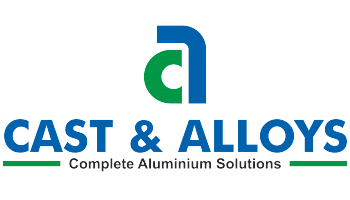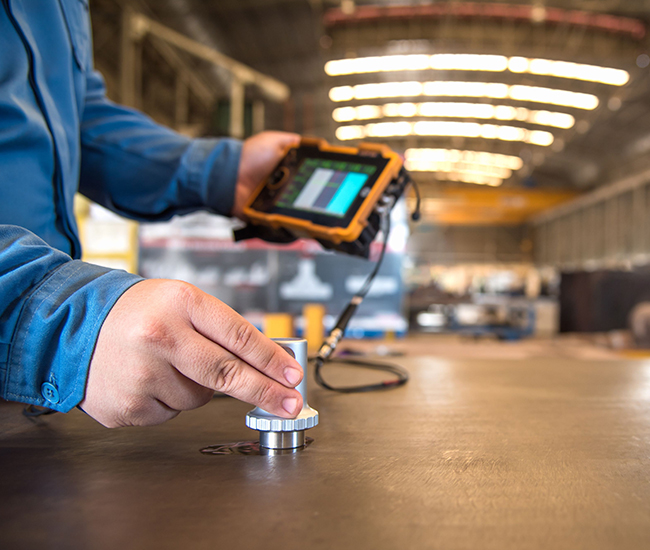Despite being lightweight, high corrosion resistance, and environment friendly, Aluminum has one more amazing attribute; i.e., its exceptional Thermal Conductivity, which positions it as a preferred material for components necessitating efficient heat dissipation.
The high thermal conductivity of Aluminum allows it to transfer heat quickly through its structure. And its low density leads to better radiating of heat in air. So it is preferred over Steel as well as Copper. So, aluminum makes an excellent choice for various applications demanding lightweight materials without compromising on thermal management capabilities.
By efficiently conducting heat away from sensitive components, aluminum helps prevent overheating. Overheating leads to performance degradation, reduced lifespan, or even catastrophic failures.
Cast & Alloys specializes in Aluminum casting and forging and uses these properties to offer comprehensive solutions to its clients. Forging involves shaping aluminum by applying force to create durable components. The thermal conductivity of aluminum is uniformly disseminated in the forged components, leading to enhanced structural integrity. And this ensures uniform heat dissipation, a critical factor in preventing localized hotspots.
The versatility of aluminum in addressing heat dissipation requirements extends to various industrial sectors like automotive, 2-wheelers, electric vehicles (EVs), railways, oil and gas, and marine industries. Because of this property aluminum is an ideal material for Casted and Forged components that require heat dissipation, thereby enhancing the performance, durability and longevity of the products.
Automotive applications
Aluminum casted and forged components are used in the Automotive industry to manufacture various engine parts. These parts require high thermal conductivity, which aluminum provides. During engine operation, these parts generate significant heat, and aluminum ensures that they work efficiently and reliably. Efficient heat dissipation in these critical engine parts is essential for maintaining optimal operating temperatures and preventing thermal stress-induced failures. The lightweight nature of aluminum further contributes to fuel efficiency and overall vehicle performance.
Enhanced Performance:
In the realm of 2-wheelers, efficient thermal management is synonymous with improved performance. Overheating can lead to reduced engine efficiency and power output. By dissipating heat effectively, components can operate within optimal temperature ranges, ensuring consistent performance and preventing performance degradation over time.
Battery Longevity in Electric Vehicles:
Thermal regulation is essential, especially for an electric vehicle’s batteries, which are its heart. Batteries produce heat throughout the charging and discharging cycles, and insufficient thermal management can hasten degradation and shorten lifespan. The battery must have appropriate temperature management systems, such as cooling mechanisms, to maintain its longevity and efficiency.
Reliability in Harsh Environments:
Efficient thermal management is essential in the oil and gas sector since equipment works in harsh conditions. Aluminum’s excellent thermal conductivity makes it a great material for many components used in the industry that frequently encounter severe temperatures. Dissipating heat is essential for parts that are subjected to high temperatures and adverse environments to prevent overheating, corrosion, and early failure.Effective heat dissipation increases equipment longevity and raises operational reliability in this demanding sector.
Energy Efficiency in Railways:
The railway industry benefits from thermal management to prevent overheating and energy loss. Aluminum’s thermal conductivity is utilized for various components, including brake systems and power transmission elements. The dissipation of heat ensures the reliability and safety of railway systems, especially during high-speed operations.The railway systems become more efficient, which results in cost savings and sustainability improvement.
Safety in Marine Applications:
Marine applications, with their exposure to saltwater and varied climates, require reliable thermal management to ensure safety. Overheating in engines or critical systems can lead to breakdowns at sea. So, Marine vessels rely on effective thermal dissipation methods, which often utilize materials such as aluminum to prevent corrosion. And contribute to the safety and reliability of marine vessels.
In conclusion, Aluminum’s exceptional thermal conductivity makes it an unparalleled choice for components that require effective heat dissipation. Its properties are harnessed through forging or casting processes to address the diverse needs of industries worldwide. Cast & Alloys is committed to meet customer requirements on quality, cost, delivery, innovation, and sustainability, and this underscores the importance of aluminum in providing reliable and efficient solutions in today’s complex global environment.
Thermal management has a significant effect on the effectiveness and dependability of products in these sectors. It affects not just temperature regulation but also component longevity, performance, and safety. The need for greater sustainability and efficiency in industries that are always expanding makes thermal management more and more important.




